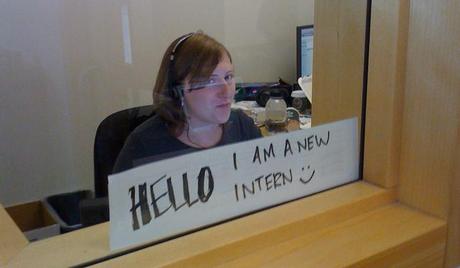Paid interns can be worse off than unpaid, writes Dion Watts…

Society has called time on unpaid internships. The work of organisations like Intern Aware, leading to HMRC investigating unpaid internships, is contributing to a step change in how companies regard unremunerated labor.

Photo by Andrew Hitchcock
As a patron of job sites notorious for advertising illegal unpaid internships (illegal because they are being offered by profit-making private firms rather than charities – the government has rather tellingly clarified this point in a post on employment rights for interns), I have definitely noticed the shift. I now see serial offenders offering internships that were previously unpaid at National Minimum Wage, or some derivation thereof calculated daily or weekly. Like most people, I was pleased by the change. Interns usually work the same hours as permanent staff and carry out work that would otherwise have had to be completed by permanent staff. They clearly deserve to be paid.
However, I was recently consoling a friend after a particularly tough day as an intern for a lifestyle magazine, and I found myself recalling a point made by one of my academic idols, Dan Ariely. My friend had been subject to a gruelling workload, consisting of every menial task that needed doing in the office, on top of a challenging schedule of news writing. Her supervisors were seemingly giving no consideration to her workload and just piling on the tasks. When my friend innocently asked about expected timescales for completion of a series of articles, the response was simply “they just need to be done”.
While listening to this, I remembered what Ariely had said about the distinction between social and economic resources. His inspiration came when dining with friends in a Japanese restaurant and he observed that everyone in his party was reluctant to eat the last California roll on the communal platter. He asked the server how often this happened, and was told almost every time. Ariely extrapolated from this phenomenon an economic experiment involving those delicious Lindt chocolate balls. He set up a stand in a busy part of Duke University with a sign offering students free Lindt balls. He then repeated the experiment offering the same Lindt balls for five cents each. The results were surprising: students limited themselves to one or two of the free balls, but positively gorged themselves when they cost five cents each. The conclusion: people regard a resource costing nothing differently to one that they pay even a nominal amount of money for. In Ariely’s words, the free balls are “a shared resource, and once something is part of the social good, it leads us into the realm of social norms, and with that the rules for sharing with others.”[1]
I would argue that volunteers are a shared resource, and part of the social good. The legal position that volunteers do not have a contract of employment and therefore are not subject to fixed hours reflects the fact that they are free to volunteer elsewhere. It would be wrong for one organisation to try and monopolise a volunteer’s time and effort. Interns, however, are increasingly seen as economic resources in the eyes of employers and subject to heavy workloads as a result. Although it was never legal for companies to “employ” interns as volunteers in order to avoid paying them, arguably the lack of a wage would have made bosses think twice about working them too hard. But charge them a small amount for the privilege and suddenly employers are more than happy to eat all the Lindt balls. Therefore, the National Minimum Wage must be robust enough to bridge the powerful conceptual gap between volunteering and low paid work.
[1] Ariely, Dan. 2010. A Taste of Irrationality: Sample chapters from Predictably Irrational and Upside of Irrationality (Kindle edition). HarperCollins e-books.
